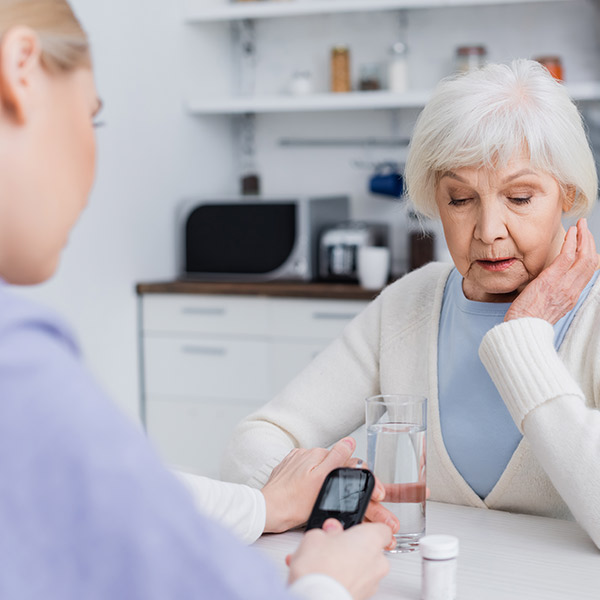




As some of you find out that you have diabetes, if you're not yet married and you're active in the dating scene, you may worry what this means for you. Clearly, having diabetes is not going to be nearly as
unfavorable in a relationship when dating than if you had a sexually transmitted disease. However, at times, it may feel that way. Not to worry. Having diabetes while dating doesn't need to present a problem as long as you take the right approach. Here are a few things to know and consider.
The worst thing you can do is try and hide the fact that you have diabetes. This not only keeps your partner in the dark (which they may not appreciate when they finally do find out), but it also puts a lot of unnecessary stress and burden on yourself.
Every time you're out with them, you're going to be trying to hide this fact. A relationship should be based on trust, not one that is built on dishonesty from the start.
Remember this going forward. While you may not need to tell them on or before date one, by the time you've had a few dates, you'll definitely want to mention it. Otherwise, you could be setting yourself up for problems that could probably be easily avoided.
While this news isn't going to really impact your partner in a major way, it does impact the relationship to some degree since you are going to be a bit more limited in what you can do as far as food goes. So, it's just easier to get the information out there from the start.
Next, you'll also want to take the reins on planning your dates. This doesn't mean you can't ever let your partner plan your dates because some people do take great joy in doing that. At least in the beginning, try and plan most dates without overstepping your bounds. This way, you can plan meals at locations where you know there will be 'safe' foods for you to eat, and try and plan the meals at the times when you know your body is going to be needing them.
You might also plan stops for snacks accordingly as well.
Your partner's turn to plan? Try not to stress too much. Consider carrying a light snack with you so that you can eat it on the go without interrupting the plans for the day or evening. You can also search online for any new restaurant they suggest to see what there is for you to eat.
With a little creativity and menu tinkering, there is almost always something that you can eat.
Because diabetes isn't just about the foods you eat but also spans to your entire health condition, it's also important to get your partner informed about your health history and keep them informed.
Remember, this person cares about you – or at least they should. (Otherwise, you need to find a new partner!) Therefore, they will probably want to know these details and to be there to support you through them.
If you have serious health concerns from the beginning of your relationship, don't hide these either. It is only fair that your partner knows what the situation is before he or she gets involved. This may mean they choose not to stick around, but you will feel a lot better knowing that they are fully informed going in and are still choosing to be with you.
Holding a secret in, especially from someone you care about, is never a good feeling or a good idea.
So, be sure that you keep these tips in mind. In most cases, dating with diabetes is no big deal at all and most people will find a partner and continue on with the dating process just fine. But you do want them to be totally up to date on your condition and know what they can do to support you so that they can make it work as best they possibly can.
Daily Affirmation: Being strong doesn't necessarily mean not showing emotion. I will strive to reach out to others during emotional moments when I could benefit from support.